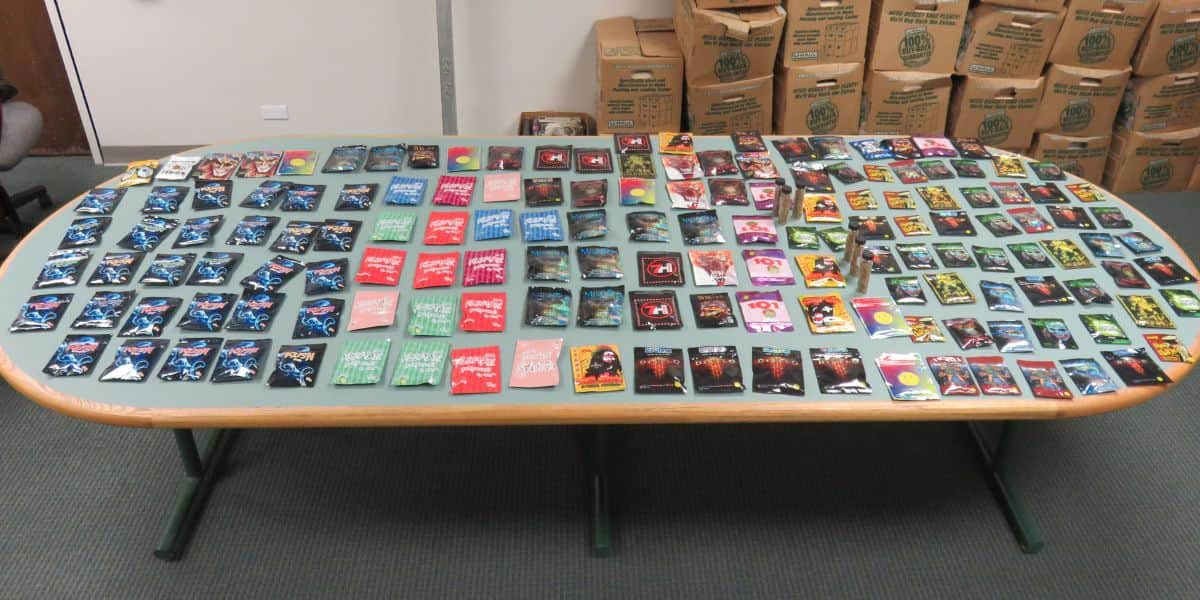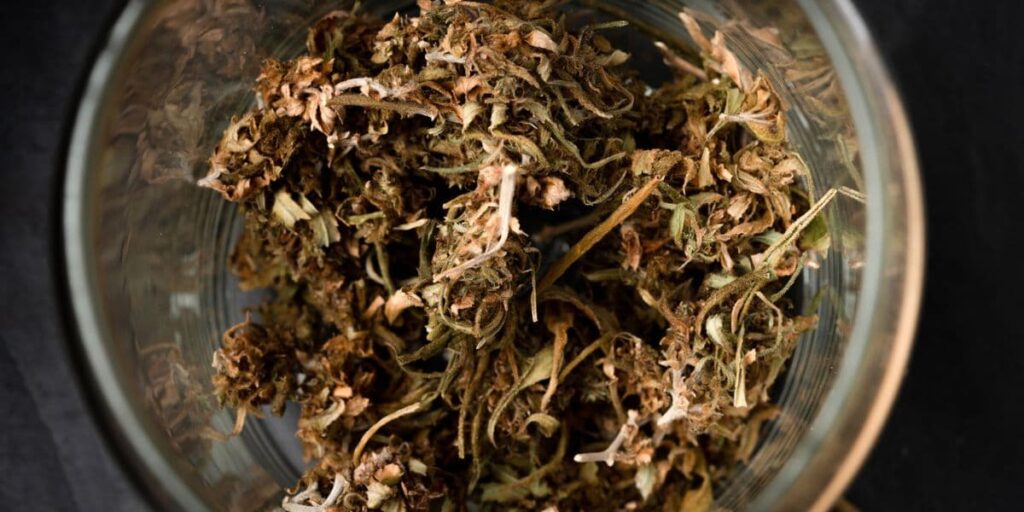What Is Synthetic Marijuana (K2/Spice)?


Medical Writer:
Reviewer:

Johnny Kim
Executive Psychotherapist
Medical Writer:
Reviewer:

Johnny Kim
Executive Psychotherapist
In the United States, more people are getting addicted to fake cannabis, known as synthetic marijuana, which is causing more problems and deaths.
This synthetic drug is often called fake marijuana or synthetic cannabis. It is classified as a new psychoactive substance (NPS) and is commonly known as K2 or Spice. It consists of a constantly changing array of additives and hazardous chemicals.
Table of Contents
ToggleFake drugs can’t be found in regular tests, so people think they’re safe. They mislabel, do not control, and market them in a tricky way, posing a risk to users.
Synthetic marijuana is becoming more popular, especially among young people. You can easily find it at head shops, gas stations, novelty stores, and online.
What Is Synthetic Marijuana?
Synthetic marijuana, also called K2 or Spice, is a mixture of plant material and artificial chemicals. It is sold with the label “not for human consumption.” Despite this, it is used for smoking, vaporizing, ingestion, or injection by those seeking a high.
It is commonly available in head shops, gas stations, and online, disguised as “potpourri” or “herbal incense.”
The term synthetic marijuana misleadingly suggests a benign and safe alternative akin to natural, organic marijuana. However, the reality is starkly different.
Synthetic cannabinoids imitate the impact of THC, the primary active component in cannabis. Nonetheless, these compounds are not identical and present a significantly higher risk.
What Is Synthetic Cannabinoids?
Synthetic cannabinoids, often labeled as “designer drugs,” fall into the category of new psychoactive substances (NPS). These compounds are a variable concoction of chemicals engineered to imitate the psychoactive properties of THC.
Synthetic cannabinoid chemicals connect with brain receptors like THC but are more potent and longer-lasting. This increases the risk of unpredictable side effects and long-term substance abuse problems.
Fake cannabinoids, primarily manufactured in Asia, are smuggled into the US disguised as different items.
The Centers for Disease Control and Prevention (CDC) and the Drug Enforcement Administration (DEA) have banned substances in confiscated imports. Producers change ingredients to bypass rules because there are no strict regulations on the production.
Synthetic Cannabis Brands
Manufacturers use sneaky tactics to sell synthetic cannabis that resembles traditional marijuana strains. They use similar names to attract buyers and avoid detection.
Some brand names have become very famous and still serve as slang for fake cannabis. This happens even if the products are no longer around or have been given a new name.
Among the widely recognized brand names for synthetic cannabis are:
- K2
- Kush
- Bliss
- Genie
- Scooby Snax
- Green Giant
- Purple Kush
- Black Mama
- Atomic Blast
- Zohai
- Red X
- Green Peace
- Hindu Kush Mountain

Street Names for Synthetic Weed
Chemists are constantly changing the formula of synthetic weed to avoid the DEA, causing new brands to appear and disappear quickly.
Slang terms for synthetic weed often originate from their once-popular brand names. The most common street names for synthetic weed are:
- Blaze
- Kronic
- Fake weed
- Legal weed
- Posh
- Potpourri
- Liquid incense
- Spice
- Snax
Synthetic Marijuana Chemicals
In synthetic marijuana, the plant material is the sole organic component; the drugs and active ingredients responsible for psychoactive effects vary with each batch, yet all strive to replicate the impact of THC.
A study investigating synthetic cannabis products, following a rise in emergency room visits linked to these products, identified various additives, including:
- Synthetic cathinones (commonly known as bath salts)
- MDMA
- Rodenticide (rat poison)
- Brodifacoum (a strong anticoagulant)
Drug manufacturers use many chemicals to make synthetic marijuana from plant materials. These four substances are just a few examples.
Each additive is risky alone, but when they mix, the danger increases. This can lead to more side effects, overdoses, and even death.
In 2014, a study found 134 different synthetic cannabinoids. New versions come out every one to two years, replacing the old ones. Consequently, determining the exact composition of each batch of synthetic cannabinoids is almost impossible.
Synthetic Marijuana Side Effects
The side effects of K2 and comparable “herbal incense” products are numerous, owing to the diverse chemicals they contain.
The National Institute of Drug Abuse (NIDA) notes that synthetic cannabinoids share a common trait: their strong affinity for the same cell receptors as THC. This leads to more severe and unpredictable outcomes, such as the exacerbation of mental health disorders.
The most commonly reported side effects of synthetic marijuana are:
- Elevated mood
- Euphoria
- Anxiety
- Altered perception of reality
- Hallucinations
- Confusion
- Paranoia
- Sweating
- Tremors
- Memory loss
- Increased heart rate
- Chest discomfort
- Difficulty breathing
- Feeling sick
- Throwing up
- Having headaches
- Experiencing diarrhea
Synthetic cannabinoids are a new type of drug. We are still learning about their long-term side effects and health risks. Understanding the potential dangers of using them regularly is important.
Long-term consequences of synthetic marijuana usage include the following:
- Stroke
- Seizures
- Heart damage
- Acute kidney injury
- Depression
- Memory loss
- Mania
- Suicidal thoughts
- Low potassium
- Muscle stiffness
- Spasms
- Hypoglycemia (low blood sugar)
- Prolonged psychotic breaks
- Overdose
- Withdrawal
- Long-term use can lead to psychosis in people who did not have mental health problems before. This is a concerning outcome. Psychosis is a severe mental health condition. It can cause individuals to lose touch with reality.

Dangers
The unpredictable nature of the body’s response to the unidentified components in synthetic marijuana renders it highly hazardous. Users of K2, even those with extensive experience, face the risk of severe reactions or overdose with each use of synthetic marijuana.
The manifestations of K2 can be misleading, appearing as symptoms of other conditions, particularly when combined with other substances like drugs and alcohol. This can result in misdiagnosis and inappropriate treatment.
Given the absence of a specific remedy for synthetic marijuana overdose, emergency medical teams can only observe and manage the symptoms. It is crucial to seek immediate medical attention for medical or mental health crises.
Synthetic Marijuana Withdrawal
Withdrawal from synthetic marijuana is complex and can be hazardous, often necessitating medical intervention. Moreover, withdrawing from synthetic marijuana may trigger the return or exacerbation of co-occurring disorders.
Reported symptoms of withdrawal from synthetic marijuana include:
- Lethargy
- Mood swings
- Shaking
- Sweating
- Hot and cold flashes
- Cravings
- Vomiting
- Headaches
- Extreme thirst
- Psychosis
- Violent outbursts
- Confusion
- Seizures
Although no medications approved by the FDA exist specifically for synthetic marijuana withdrawal, the associated symptoms and mental health issues can be managed and alleviated through medically supervised detoxification.
Synthetic Marijuana Addiction Treatment
If you or someone you love is struggling with synthetic marijuana addiction, reach out to White Oak Recovery Center for assistance. WORC provides proven treatment for those struggling with substance abuse and addiction. Don’t hesitate to reach out if you need support.
At White Oak Recovery Center, we make a personalized treatment plan for each resident. This plan is designed to help you recover for life while addressing your specific needs and preferences.
We provide comprehensive medical detox and care in a secure, private residential facility in the San Fernando Valley of Los Angeles, California.
The various indicators of synthetic marijuana misuse may obscure underlying issues that initially led to drug use. Our experts use proven therapies like dual diagnosis and medication-assisted treatments. They help you understand and overcome the root causes of addiction.
Our caring treatment specialists are eager to assist you with any questions or concerns. Contact us to embark on the journey toward a renewed life in recovery.

Am I covered for addiction treatment?
Your insurance may cover treatment. Call now for an entirely free and confidential assessment. Recovery starts with a phone call.

- Bilici, Rabia, “Synthetic Cannabinoids.” Northern Clinics of Istanbul, Dec. 2014.
- “Spice/ K2, Synthetic Marijuana.” United States Drug Enforcement Administration, Oct. 2022.
- Antoniou, Tony, and Nuurlink, N. David, “Synthetic Cannabinoids.” Canadian Medical Association Journal, Feb. 2014.
- Alipour, Azita, et al., “Review of the Many Faces of Synthetic Cannabinoid Toxicities.” The Mental Heal Clinician, Mar. 2019.
- Karila, Laurent, et al., “The Synthetic Cannabinoids Phenomenon.” Curr Pharm Des., 2016.
Medical Disclaimer:







